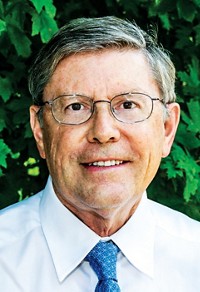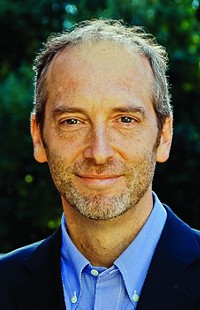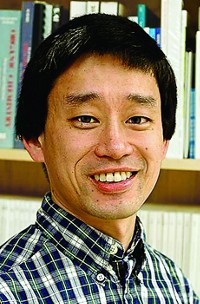Advertisement
Grab your lab coat. Let's get started
Welcome!
Welcome!
Create an account below to get 6 C&EN articles per month, receive newsletters and more - all free.
It seems this is your first time logging in online. Please enter the following information to continue.
As an ACS member you automatically get access to this site. All we need is few more details to create your reading experience.
Not you? Sign in with a different account.
Not you? Sign in with a different account.
ERROR 1
ERROR 1
ERROR 2
ERROR 2
ERROR 2
ERROR 2
ERROR 2
Password and Confirm password must match.
If you have an ACS member number, please enter it here so we can link this account to your membership. (optional)
ERROR 2
ACS values your privacy. By submitting your information, you are gaining access to C&EN and subscribing to our weekly newsletter. We use the information you provide to make your reading experience better, and we will never sell your data to third party members.
Synthesis
Arthur C. Cope Scholar: Michael J. Krische
by Mitch Jacoby
March 4, 2013
| A version of this story appeared in
Volume 91, Issue 9
Reactions that form carbon-carbon bonds hold a place of special importance in chemical synthesis. Researchers who excel in this field develop a knack for applying these reactions masterfully and use them to synthesize complex products. But relatively few researchers develop broad, new families of C–C bond-forming reactions.
That’s exactly what Michael J. Krische, chemistry professor and Robert A. Welch Chair in Science at the University of Texas, Austin, has done in processes that merge the fields of catalytic hydrogenation and carbonyl addition. That accomplishment has earned him the respect and admiration of his colleagues.
Krische’s scientific research “is distinguished by remarkable inventiveness” with regard to chemical methodology, says Alois Fürstner, a specialist in organometallic chemistry and director of the Max Planck Institute for Coal Research in Mülheim, Germany. He adds that Krische’s contributions in the area of C–C bond-forming chemistry are characterized by “elegance of application,” especially to synthesizing bioactive target molecules, and stand out for their “significance and practicality.”
Krische is best known for developing C–C bond-forming hydrogenation reactions, which he describes as processes wherein two or more reactants are hydrogenated to form a single, more complex product. These reactions often generate products of carbonyl or imine addition. However, unlike corresponding classic carbonyl addition reactions, Krische’s by-product-free technique does not require stoichiometric quantities of preformed organometallic reagents. This body of work is recognized as the first systematic effort to exploit catalytic hydrogenation in C–C couplings beyond hydroformylation, an established industrial process for converting alkenes to aldehydes.
In an extension of that work, Krische and coworkers developed related “C–C bond-forming transfer hydrogenations.” In these processes, the exchange of hydrogen between alcohols and unsaturated reactants generates aldehyde-organometal pairs that combine to give products of carbonyl addition. This straightforward approach to direct alcohol C–H functionalization is also by-product-free, and furthermore, it circumvents the redox manipulations often required to convert alcohols to aldehydes.
Describing these discoveries as “authentic examples of paradigm-shifting work,” Jeffrey S. Johnson, an asymmetric catalysis researcher at the University of North Carolina, Chapel Hill, says Krische has “fundamentally changed how chemists view hydrogenation and the chemistry of carbonyl addition.”
Krische, 46, obtained a bachelor’s degree in chemistry from the University of California, Berkeley, in 1989 and then conducted research as a Fulbright Fellow at Finland’s University of Helsinki. He earned a Ph.D. at Stanford University in 1996 and then served as a postdoctoral associate at Louis Pasteur University, Strasbourg, France. In 1999, Krische was appointed assistant professor of chemistry at the University of Texas, Austin, and was promoted directly to full professor in 2004.
Krische has received numerous awards in recognition of his contributions to chemistry. Among other accolades, he has been honored with the Presidential Green Chemistry Challenge Award, the GlaxoSmithKline Scholar Award, and the Mukaiyama Award from Japan’s Society of Synthetic Organic Chemistry, and he was named a Humboldt Foundation Senior Research Fellow. Krische has published some 175 scholarly articles and serves as an editor for Chemical Communications and Topics in Current Chemistry.






Join the conversation
Contact the reporter
Submit a Letter to the Editor for publication
Engage with us on Twitter